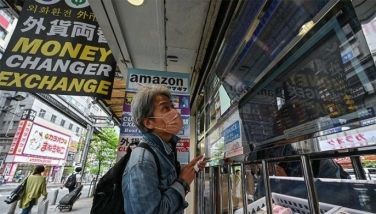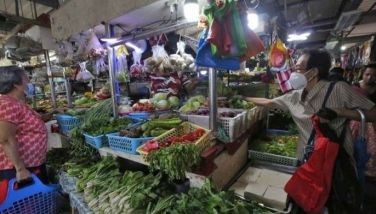‘Prolonged war to worsen trade balance in ASEAN +3’
MANILA, Philippines — A prolonged war between Russia and Ukraine would lead to further increases in fuel and commodity prices, and worsen the trade balance for most economies in the Association of Southeast Asian Nations (ASEAN) +3 (China, Japan and South Korea) region.
In its latest analytical note, the ASEAN +3 Macroeconomic Research Office (AMRO) said since the war in Ukraine started, some ASEAN +3 economies have seen a decline in their trade with Russia.
“The decline in ASEAN +3 trade with Russia (and Ukraine) is manageable so far, but as the war drags on and sanctions are escalated, shortages of critical goods would begin to bite in some economies,” AMRO said.
It said loss of trade with both economies is unlikely to be large, but it may intensify existing shortfalls due to factors such as supply shortages and pandemic-induced restrictions.
A ban on fuel imports from Russia, which supplies to some ASEAN +3 countries including Japan, is also seen to cause ripple effects across the region.
Analysts believe shifting even just a portion of the demand currently served by Russia will further drive up fuel prices and affect other fuel-importing economies in ASEAN +3.
“High fuel prices will worsen trade and current account balances for many ASEAN+3 economies,” AMRO said.
It said many ASEAN+3 economies with the exception of Brunei, Indonesia and Malaysia, had fuel trade deficits ranging from two percent to nine percent of gross domestic product (GDP) last year.
While some economies have seen their fuel imports from Russia decline since the war, their expenditure on fuel imports went up as fuel prices increased.
If this situation continues, AMRO said many economies in the region are likely to see widening fuel trade deficits relative to GDP.
AMRO also said the price hikes in other commodities are unlikely to improve the trade balance of most ASEAN+3 economies.
It said some economies in ASEAN+3, however, could benefit in specific categories from the increase in prices or diverted trade, if they are able to quickly scale up exports.
Among those seen to benefit are the Philippines in terms of nickel exports, China for its fertilizers, Lao People’s Democratic Republic for corn, and Malaysia and Indonesia for palm oil.
“Beyond the trade implications, rising prices are exacerbating global and regional inflation, with attendant risks to growth,” AMRO said.
It said increasing energy prices are driving up imported inflation in the region.
Rising fuel prices are also spilling to domestic prices of food and food services, in part due to unfavorable weather conditions in major agricultural producers.
“Of greatest concern is a stagflation scenario in Europe and the United States – as both are major trading partners of the region,” AMRO.
“ASEAN+3 exports and GDP growth will not be spared if this comes to pass,” it added.
- Latest
- Trending


























